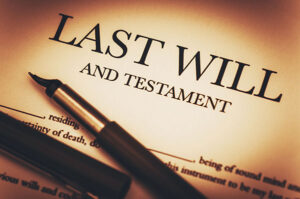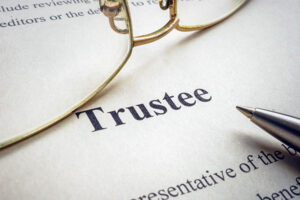When you own a gun or a suppressor, naturally, they’re 100% yours. Therefore, you should have a say in what happens to them and who gets them upon your death, right? So the main goal should be to properly assign control and possession of them in order for your wishes to be observed.
There are several ways to make that happen.
Before you start, it’s important to remember that requirements for transferring possession of a firearm can vary by state—so make sure to choose an attorney who understands those differences. Also, your attorney should be mindful of the requirements of transferring possession to someone who lives in a different state than you do.
 WILLS
WILLS
A will would seem to be an easy, no fuss way to bequeath ownership of a firearm, wouldn’t it? Like a car, or cash, or anything else—you want someone to have your property, just set out those terms in a will.
Not so fast when it comes to firearms.
First of all, is the beneficiary even ABLE to inherit a firearm?
Guns can’t be left to anyone dishonorably discharged from the military, nor those who have renounced their US citizenship in favor of another country. But the restrictions on getting a firearm through inheritance don’t stop there.
No one who has been convicted of a felony, domestic violence, or unlawful use of controlled substances can inherit a firearm, either.
And, depending on state law, if someone ISN’T able to inherit a firearm, the firearm may have to be sold. At which point, the executor would distribute the funds from the sale. And that’s just one of many possible scenarios.
Even in those cases when a beneficiary IS able to inherit a firearm, most experts suggest conducting the inheritance through an FFL. Even though you’re not necessarily required by law to use an FFL, there are advantages. An FFL will know the legalities of ownership and transport of the firearm in order to avoid any unintentional and inadvertent violations of law.

GUN TRUSTS
A gun trust is a revocable management trust created to enable the ownership of firearms. Meaning that the trust is a legal entity that actually owns the firearms or suppressors.
Why is this useful? It helps to avoid inadvertent violations of federal law. The trust can assign ownership of an NFA-regulated item, or other firearms, to multiple parties legally allowed to possess those items.
Each party would have access to and use of any of the trust’s weapons, if they are a co-trustee of the gun trust and have gone through the proper background check and identification requirements.
Gun trust items do not have to go through probate. A gun trust also eliminates the need to get a Chief Law Enforcement Officer’s signature upon the acquisition of certain firearms.
Importantly, there’s a difference between a regular trust that includes guns, and an NFA trust. NFA items are those guns or accessories subject to Title II of the National Firearms Act. They include suppressors, machine guns, and short-barreled rifles.
Many attorneys recommend using NFA trusts ONLY for NFA items due to the fact that the restrictions of NFA items are substantially more than a trust owning cash or property—and would likely be set up differently.
Another benefit of a gun trust is that it makes multi-generational ownership of weapons much easier. Because the trust owns the firearms, ownership doesn’t need to be transferred. The trust merely assigns trustees permitted to have access to the firearms. Also, multiple trustees can share the right to inherit.
As you can see, gun trusts and wills each have certain advantages—but to know for sure what the best course of action is for your situation, consult an attorney within your state of residence skilled in wills, gun trusts, gun ownership, and transfer of gun ownership.

